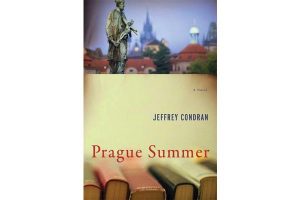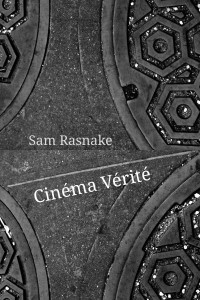288 pages, $26
Review by Michelle Elvy
Long after I finished reading Jeffrey Condran’s novel Prague Summer, the opening quote by WB Yeats lingers in my mind: “What do we know but that we face one another in this place?” It is the most suitable of quotes to set the scene, and this idea that there’s nothing more important than the space between us creates a haunting mood.
The novel begins twice, really. First with a body falling quite beautifully from the sky:
The body seemed almost to float as it left the protection of the window casement. Against the dark sky, buoyed on a humid night’s air, its pale green skirt billowed like gossamer around thin hips and legs. The passive face of the woman looked toward the heavens, mouth open, a few strands of dark hair caught in the corner of her colored lips. For a moment, the whole—skirt, legs, hips, hair—paused cinematically before remembering its obligation to fall swiftly to the unforgiving cement below.
A strong opening moment, a defenestration to set the mood. A woman falling effortlessly, almost gracefully, toward her eventual and inevitable demise. Continue reading
![[PANK]](http://pankmagazine.com/wp-content/themes/pank/assets/images/pank-logo-large.png)


